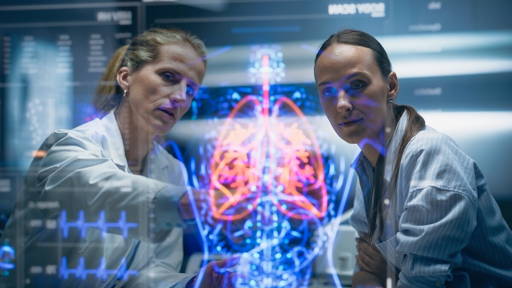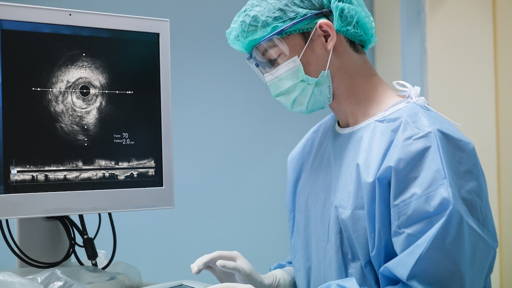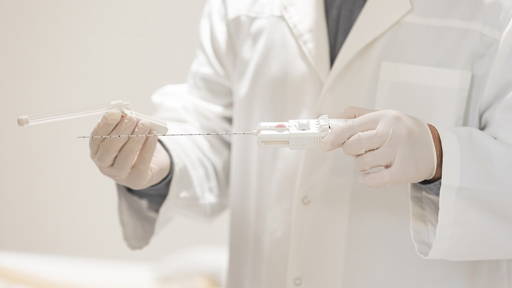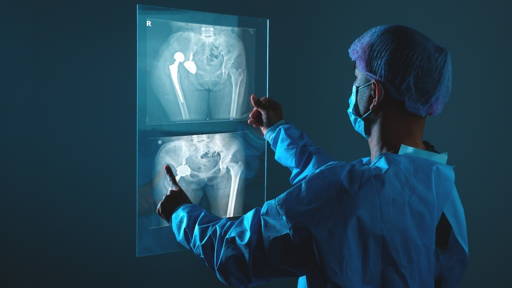In Dr Bot: Why Doctors Can Fail Us and How AI Could Save Lives, Charlotte Blease, a researcher at Harvard Medical School and Uppsala University, offers a provocative yet hopeful vision: artificial intelligence could become the most reliable physician in history.
The human limits of medicine
Each year, hundreds of thousands die from misdiagnosis due to human error. Doctors, overworked and overwhelmed by an endless flood of medical data, are facing an unprecedented crisis of burnout. “We tend to think doctors are gods,” Blease says. “But they’re human, prone to fatigue, bias, and forgetfulness.”
Her latest book, Dr Bot, opens with an uncomfortable truth: medicine is failing not because of a lack of compassion or intelligence, but because of the limits of human cognition. Every 39 seconds, a biomedical article is published; even scanning 2% of these would take a physician 22.5 hours per day. Meanwhile, women wait nearly nine years on average for an endometriosis diagnosis, and victims of domestic abuse are dozens of times more likely to confide in a computer than in a human doctor.
For Blease, the issue lies in the psychological aspects of the interaction in the doctor’s office. Patients often omit crucial details out of shame or fear. “We’re dying of embarrassment,” she writes. Hierarchies, time pressure, and unequal dynamics in the exam room erode communication. But intriguingly, research shows that people are often more candid with machines.
She argues that medicine’s most persistent problems, like inequality, errors, and inefficiency, cannot be solved by hiring more staff or investing more money alone. They stem from the human condition itself: cognitive limits, emotional fatigue, and the social structures that shape behavior. “AI offers a way to complement, not replace, our humanity by confronting our blind spots,” according to Blease.
Enter Dr Bot
In Dr Bot, Blease envisions an AI-assisted consultation that could transcend these human blind spots. Artificial intelligence, she argues, can provide “ambient intelligence” – systems that quietly listen, transcribe, and analyze without disrupting the clinical conversation. Already, one in seven doctors in the UK uses such technology to automatically draft electronic medical notes.
AI doesn’t tire, doesn’t discriminate, and doesn’t forget. It can process vast databases, identify rare conditions, and detect subtle correlations invisible to the human eye. For an estimated 500 million patients with rare diseases worldwide, AI tools can offer diagnostic insights in seconds, where traditional medicine might take decades.
“The book isn’t a love letter to technology,” she insists. “It’s a call for responsibility.” Used recklessly, AI could amplify existing inequalities and erode privacy. But when implemented thoughtfully, it could also become medicine’s most ethical collaborator.
Beyond diagnostics, Blease highlights how AI might transform the very nature of care, from personalized treatment plans to mental health support. She notes that people are 37 times more likely to disclose domestic abuse to a computer than to a human doctor. “If AI can open doors to honesty and safety,” she writes, “then it’s already saving lives.”
Doctors and machines must collaborate instead of competing
AI promises so much, but medicine remains resistant to the AI revolution. Blease points out that the medical profession has historically opposed every major innovation. “Antiseptics, anesthesia, hand hygiene in hospitals, and telemedicine were once met with the same skepticism,” she notes. “Now it’s indispensable.”
Her surveys, spanning nearly a decade, reveal a contradiction: most physicians believe AI will take over only the tasks they dislike, like paperwork, transcriptions, and scheduling. Yet the technology is advancing far beyond administrative work. It is beginning to challenge the very foundations of diagnostic reasoning itself. “The question isn’t whether AI will assist doctors,” Blease says, “but how much of medicine should remain human.”
Generative AI systems are already entering exam rooms, offering differential diagnoses and drafting follow-up instructions in real-time. Far from replacing doctors, Blease envisions a symbiosis where machines augment human empathy and judgment. “AI could give us back what medicine has lost: time to listen.”
At the same time, she warns against complacency. “Doctors must learn to work with algorithms, not around them,” she says. Future medical education, Blease argues, should include AI literacy so that young physicians know how to interpret and critically question the results provided by algorithms. “The next generation of doctors must be bilingual: fluent in human empathy and in machine reasoning.”
A more human healthcare
Paradoxically, Blease argues, automation might make medicine more humane. The more machines handle repetitive or data-intensive tasks, the more emotional energy clinicians can devote to their patients. “AI could make care more personal,” she says, “not less.”
Access, too, is a moral issue. Over half of the global population now has mobile internet access, but millions still lack access to basic medical care. Even imperfect AI chatbots, she suggests, could be life-saving for those who have no doctor at all. ChatGPT, for instance, can already provide reliable guidance for conditions that might otherwise go undiagnosed for years.
Of course, these systems must be transparent, accountable, and safe. “We shouldn’t demand higher standards from machines than we do from people,” Blease cautions. After all, only about half of medical decisions today are based on the best available evidence.
Still, she believes that patients will adapt faster than the healthcare system itself. “We’ve seen it before,” she says. “When the internet arrived, doctors feared it would cause chaos. Instead, it empowered patients.” AI, she predicts, will do the same, democratizing information and fostering a new kind of partnership between patient and provider.
Dr Bot will have trouble gaining trust
Dr Bot is less about machines than about the humans they serve. It asks what we really want from healthcare: certainty, empathy, or simply time. For Blease, the answer lies in balance. “AI won’t fix healthcare,” she admits. “Its introduction will be messy. But like the internet before it, it will democratize access to information, and that’s revolutionary.”
The doctor of the future might not be a person, but that doesn’t mean they won’t care. “Artificial intelligence won’t replace compassion,” she says. “It might just give us the space to rediscover it.”
Blease’s vision, radical yet grounded, reframes the future of care as a collaboration between code and conscience. Dr Bot is a manifesto for rehumanizing healthcare through technology, a reminder that the machines we build can only be as wise as the humans who design them. The true test of AI in medicine, she suggests, won’t be whether it can think like us, but whether it can help us be better versions of ourselves.
AI can help improve medicine, but only if we are honest about human fallibility: the errors we make, the biases we carry, and the limitations of what our minds can process. If we fail to face those truths, nothing will change. Healthcare will grow more inefficient, and patients will trust their AI chatbots more than human doctors. The resistance of medicine to change will eventually turn against it.







